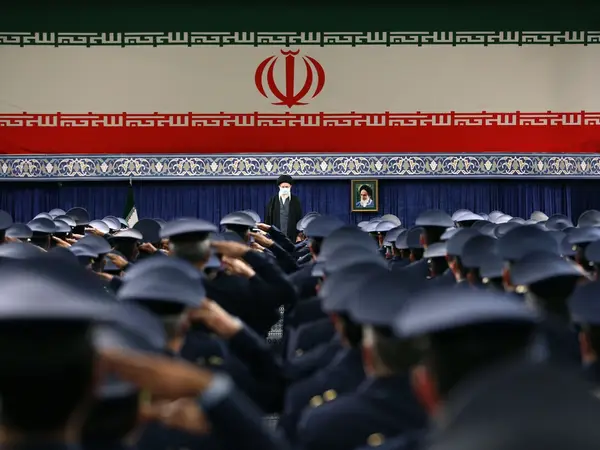The Islamic Republic of Iran's Supreme Leader Ali Khamenei has for the first time admitted that there are disagreements between the people and the regime.
Khamenei who has been dismissing popular protests as “riots” instigated by “enemies” said in a speech that Iranians should "make sure these differences do not turn into faultiness" that would tear apart the nation.
Nonetheless, Khamenei's state of denial about dissent in Iran appears to continue. He repeated that sowing discord and creating differences is the "enemy's strategy."
"The enemy is determined to bring the Islamic regime to its knees," Khamenei said on Wednesday when tens of Iranian army's air force personnel went to visit him on the anniversary of a similar visit to the founder of the Islamic Republic Ruhollah Khomeini in 1979. The air force then paid tribute to Khomeini in defiance of their allegiance to the Shah, but the visit to Khamenei was not politically or otherwise significant.
He said, "15 years ago, a US President, [presumably George W. Bush] wrote to me in a letter that the United States did not intend to overthrow the government in Iran, but intelligence reports indicated that they were mulling a plot to destroy the Islamic Republic."
Reiterating that "the enemies" were adamant to sow discord and create distrust among the people, Khamenei advised that Iranians need to strengthen their unity to foil that plot. He claimed that the rallies to mark the anniversary of the Islamic revolution will manifest this unity.
In fact, five months of protests in the streets against the government have left a fragmented society in Iran where trust in the regime is at its lowest point since Khamenei created his ideal all conservative government and barred others from taking part in the 2020 parliamentary and 2021 presidential elections.
Meanwhile, his insistence on the Islamic revolution being alive and kicking was in sharp contrast to months of protests by women and the youth demanding an end to the Islamic Republic. This time there is no doubt that protesters do not want any reforms or concessions. They demand a secular and democratic government and Khamenei is their first target.
But Khamenei sojourns in his own world and claimed that the Islamic Republic is moving forward toward the peaks of its material and spiritual progress. Material progress seems more like a myth as the government has recently decided to sell public assets and properties to finance its everyday administrative affairs. The national currency is at its historic low and inflation is well above 50 percent.
Meanwhile, sociologists and political observers in Iran have said in numerous studies that the generation-Z was the driving force behind the recent protests and most of those who were jailed for taking part in the protests were born after 2000. But Khamenei claimed that the regime has the hearts and minds of the young generation, showcasing a recent regime stunt of having youngsters in a Quran reading marathon.
In another controversial comment, while he has the final say on all matters of state and dictates all policies to the government, he called on unnamed officials to deliver what people need.
Khamenei also called for national unity, while he had earlier ruled out politicians' suggestions for an attempt at national reconciliation by putting an end to the violent crackdown on protesters.
